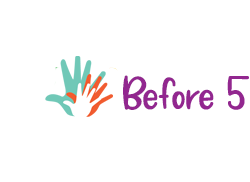The 10 Greatest Gifts I Gave My Children
Parenting from the Heart
By Steven Vannoy
Tool Four: Listen
The Center for Parenting Education tells us, “Active Listening is the single most important skill you can have in your parenting “toolbelt.” It is a specific form of communication that lets another person know that you are “with them,” “aware of what they’re saying, accepting of their perspective, and appreciative of their situation.”
Steven Vannoy stresses in this fourth chapter, “research shows that you have a greater impact on people by how you listen than by what you say.” Actively listening to our children helps us discover “more of what is going on many times.” I think we’ve all have asked a child what’s the matter, what’s wrong? And we’ve got the answer “nothing,” but we know, sometimes that’s not the case. In this chapter, Vannoy breaks down why “active” listening to children is so important. We can’t always stop what we’re doing right then to give our child 100% of our full attention, but if you know your child is upset about something, it’s probably not going to go away without some type of intervention from you. If you can take a break from what you’re doing for a few minutes and give your child your full attention, it speaks volumes to your child. They might need you only to listen to them, but if they do need more from you, you’re there for them.
Fully engaging in listening to your child can be hard on some days. We get it! Parents are pulled in many directions, and even though we want to be listening and paying close attention to what our child is telling us, our attention may be splintered on the million things we’re trying to get done. Here’s where you lean into your parenting instincts. If a child is sharing something that I would call a “small box” issue, my go-to is to pull back from my teaching preschool days and ask them “to put it in their pocket for now and save it for later.” I have used that a LOT over the years. I like it because it communicates to the child, I care about what they want to tell me, but I can’t give them my full attention at that moment. For me, this has worked great (and usually got lots of giggles as the child would “pretend” to put “it” into their pocket).
I think we all have experienced talking with someone who wasn’t really listening, and it just doesn’t feel good. As adults, we can usually assess the “why” someone isn’t listening to us, but children often can’t.
Next time, when your little one needs you to listen, stop what you’re doing (if you can) and listen. If you can’t listen right then, ask your child to “give you a few minutes.” Listening to your child sends the message they and their feelings matter. And when parents listen actively and respond positively to children, children feel loved, valued, and heard.
See you soon.



